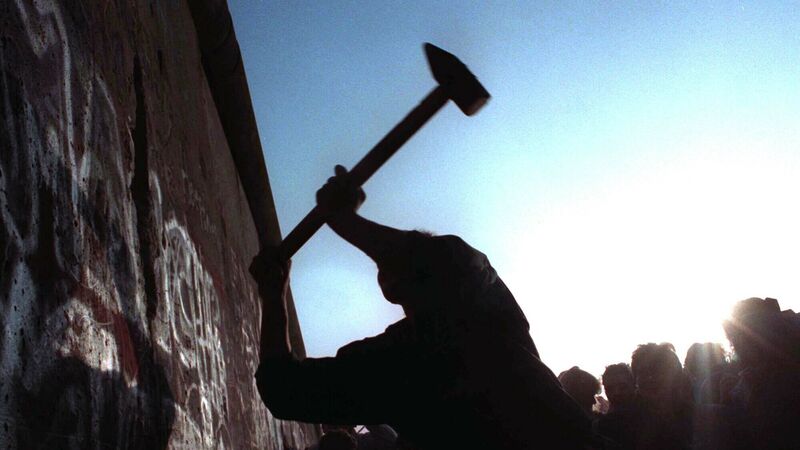Simon Coveney and Thórdís Kolbrún Reykfjörð Gylfadóttir: Renewing democracy in Europe

For millions of Europeans, a new life began after the fall of the Berlin wall in 1989. A great wave of democratisation washed across our continent, promising prosperity, raising hopes. Picture: AP /John Gaps III
On November 9, 33 years ago, the people of Berlin tore down a wall.
History did not end on that crisp November night. But for millions of Europeans, a new life did begin. A great wave of democratisation washed across our continent, promising prosperity, raising hopes.













